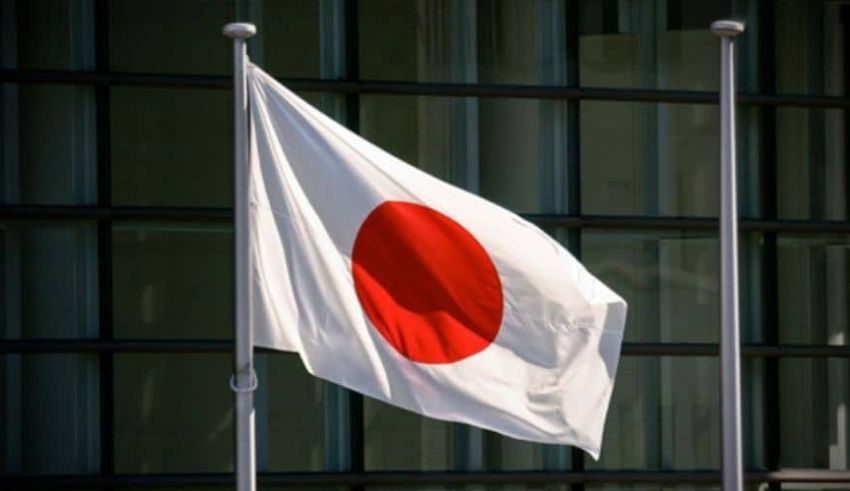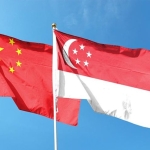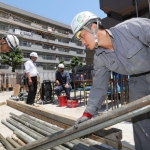
Japan is a East Asian country with a population of about 126 million and a GDP of about $5 trillion. The country is known for its advanced technology, rich culture, and pacifist constitution. The country is a close ally of the U.S. and a member of the G7, the UN, and other international organizations.
China is a neighboring country of Japan, with a population of about 1.4 billion and a GDP of about $14 trillion. The country is known for its rapid economic growth, authoritarian regime, and military expansion. The country is a rival of the U.S. and a member of the G20, the UN, and other international organizations.
Japan and China have a long and complex history of relations, marked by periods of cooperation and conflict, friendship and animosity, trade and war. The two countries share cultural, economic, and strategic interests, but also face territorial, historical, and ideological disputes.
The Problem
Japan has been on the lookout for China’s human rights abuses, especially in the regions of Xinjiang and Hong Kong, where China has been accused of violating the rights and freedoms of the Uyghur Muslims and the pro-democracy protesters, respectively. Some of the actions that Japan has taken or considered to address this issue are:
Japan has been expressing its concern and criticism over China’s human rights abuses, both bilaterally and multilaterally, through diplomatic channels and public statements. For example, in March 2021, Japan joined the U.S., the EU, and other countries in imposing sanctions on Chinese officials and entities involved in the repression of the Uyghurs. In June 2021, Japan also joined the U.S., the UK, and other countries in issuing a joint statement at the UN Human Rights Council, condemning China’s actions in Xinjiang and Hong Kong, and calling for an independent investigation.
Japan has been providing support and assistance to the victims and the advocates of human rights in China, both directly and indirectly, through humanitarian aid and civil society engagement. For example, in April 2021, Japan announced that it would donate $10 million to the UN High Commissioner for Refugees, to help the Uyghur refugees and asylum seekers in Central Asia and other regions. In July 2021, Japan also hosted a symposium on the situation in Hong Kong, inviting activists, lawmakers, and experts from Hong Kong, Taiwan, and other countries, to discuss the challenges and the solutions.
Japan has been strengthening its cooperation and coordination with other countries and organizations that share its concerns and values on human rights in China, both regionally and globally, through strategic dialogues and partnerships.
For example, in May 2021, Japan participated in the Quad summit, a meeting of the leaders of the U.S., India, Australia, and Japan, where they reaffirmed their commitment to uphold the rules-based international order and the human rights and dignity of all people. In August 2021, Japan also joined the Five Eyes alliance, a network of intelligence-sharing and security cooperation among the U.S., the UK, Canada, Australia, and New Zealand, where they agreed to enhance their collaboration on the issues of China, cyber, and counter-terrorism.
Keep Reading
The Reasons
Japan has several reasons for being on the lookout for China’s human rights abuses, such as:
Japan is a democratic and peaceful country that respects and promotes the universal principles and values of human rights, democracy, and the rule of law. Japan believes that these principles and values are essential for the peace and prosperity of the world, and that they should be protected and defended from any threats or violations. Japan also feels a moral and historical responsibility to stand up for the oppressed and the persecuted, especially in Asia, where it has caused much suffering and damage in the past.
Japan is a prosperous and influential country that has various interests and security concerns in relation to China, such as the trade and investment ties, the territorial and maritime disputes, the regional and global stability, and the alliance and partnership with the U.S. Japan believes that China’s human rights abuses pose a challenge and a threat to these interests and security, as they reflect China’s growing assertiveness and aggression, its disregard for the international norms and rules, and its ambition to dominate and reshape the regional and global order.
Japan is a responsible and reliable country that has various expectations and pressures from the international community and the domestic public regarding its role and stance on human rights in China. Japan is expected and pressured to play a more active and constructive role in addressing the human rights issues in China, as a major power and a leader in Asia, as a close ally and a partner of the U.S. and other like-minded countries, and as a member and a contributor of the UN and other international organizations. Japan is also expected and pressured to take a more consistent and coherent position on human rights in China, as a democratic and pacifist country, as a neighbor and a stakeholder of China, and as a host and a participant of the upcoming Tokyo Olympics and other international events.
The Implications
Japan’s actions have various implications for China and the human rights situation, such as:
Japan’s actions will increase the awareness and the attention on the human rights abuses in China, both within and outside China, by exposing and highlighting the facts and the evidence, by mobilizing and amplifying the voices and the opinions, and by generating and sustaining the pressure and the momentum. The actions will also increase the awareness and the attention on the human rights situation in Japan, both within and outside Japan, by inviting and encouraging the scrutiny and the evaluation, by fostering and facilitating the dialogue and the exchange, and by promoting and demonstrating the best practices and the standards.
Japan’s actions will affect the relations and the interactions between Japan and China, both positively and negatively, depending on the perspectives and the responses of the two countries. The actions could either improve or worsen the relations and the interactions, by creating or reducing the trust and the confidence, by opening or closing the channels and the opportunities, and by enhancing or undermining the cooperation and the coordination. The actions could also either increase or decrease the tensions and the conflicts, by provoking or deterring the reactions and the countermeasures, by escalating or de-escalating the situations and the crises, and by resolving or complicating the issues and the disputes.
Japan’s actions will influence the outcomes and the prospects of the human rights situation in China, both directly and indirectly, through the impacts and the effects of the actions on the actors and the factors involved in the situation. The actions could either advance or hinder the improvement and the protection of the human rights in China, by supporting or opposing the victims and the advocates, by challenging or enabling the perpetrators and the enablers, and by changing or maintaining the status quo and the trends.


























